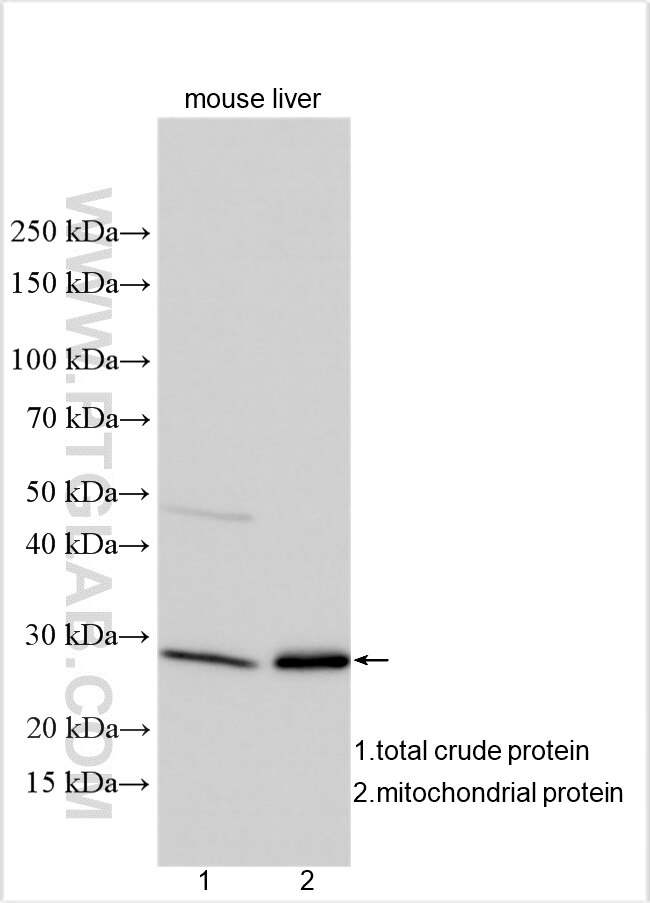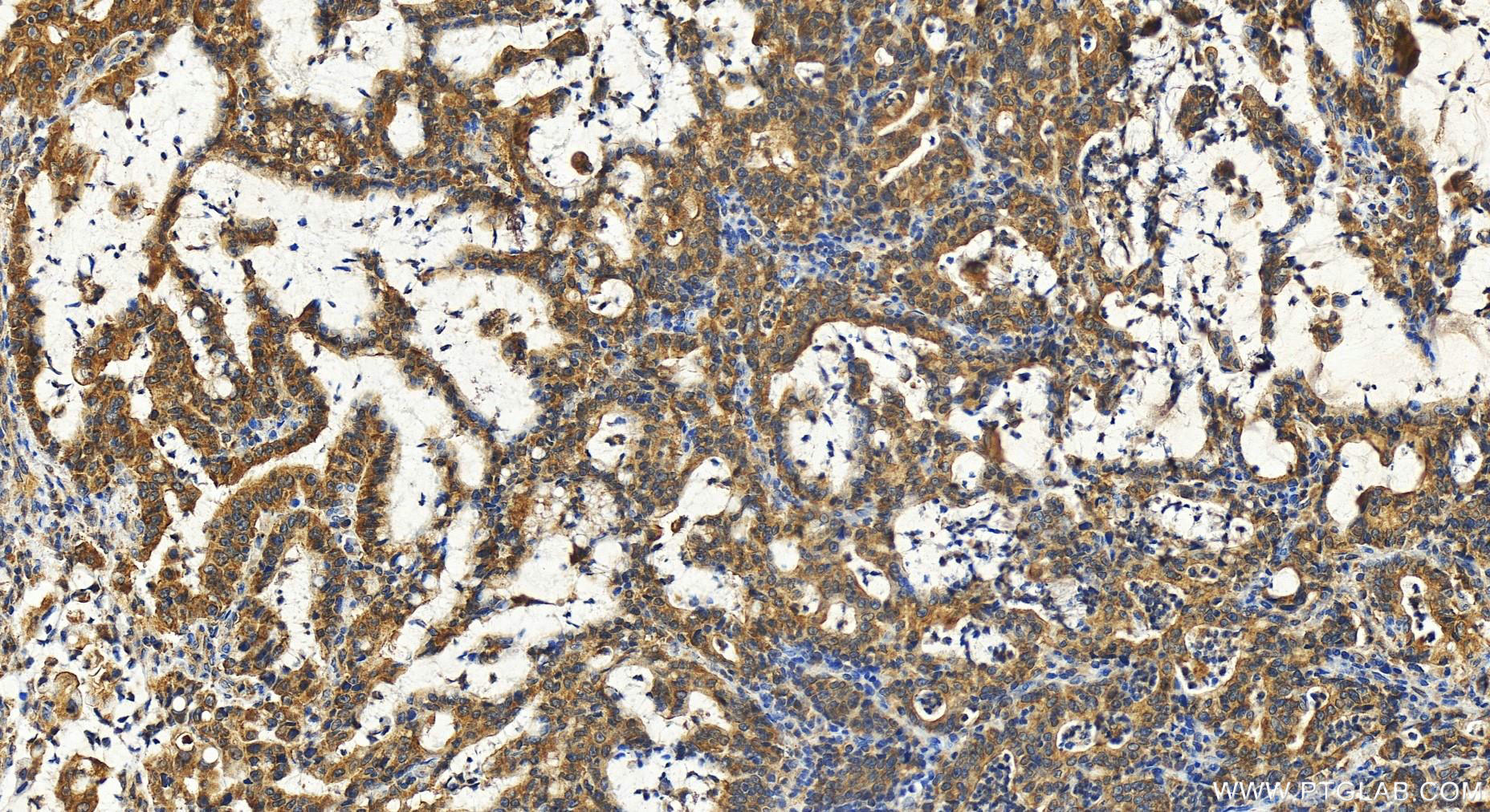ATPAF2 Polyklonaler Antikörper
ATPAF2 Polyklonal Antikörper für WB, IHC, ELISA
Wirt / Isotyp
Kaninchen / IgG
Getestete Reaktivität
human, Maus
Anwendung
WB, IHC, ELISA
Konjugation
Unkonjugiert
Kat-Nr. : 30334-1-AP
Synonyme
Geprüfte Anwendungen
| Erfolgreiche Detektion in WB | Mauslebergewebe |
| Erfolgreiche Detektion in IHC | humanes Magenkrebsgewebe Hinweis: Antigendemaskierung mit TE-Puffer pH 9,0 empfohlen. (*) Wahlweise kann die Antigendemaskierung auch mit Citratpuffer pH 6,0 erfolgen. |
Empfohlene Verdünnung
| Anwendung | Verdünnung |
|---|---|
| Western Blot (WB) | WB : 1:500-1:3000 |
| Immunhistochemie (IHC) | IHC : 1:50-1:500 |
| It is recommended that this reagent should be titrated in each testing system to obtain optimal results. | |
| Sample-dependent, check data in validation data gallery | |
Produktinformation
30334-1-AP bindet in WB, IHC, ELISA ATPAF2 und zeigt Reaktivität mit human, Maus
| Getestete Reaktivität | human, Maus |
| Wirt / Isotyp | Kaninchen / IgG |
| Klonalität | Polyklonal |
| Typ | Antikörper |
| Immunogen | ATPAF2 fusion protein Ag33299 |
| Vollständiger Name | ATP synthase mitochondrial F1 complex assembly factor 2 |
| Berechnetes Molekulargewicht | 289 aa, 33 kDa |
| Beobachtetes Molekulargewicht | ~30 kDa |
| GenBank-Zugangsnummer | BC032126 |
| Gene symbol | ATPAF2 |
| Gene ID (NCBI) | 91647 |
| Konjugation | Unkonjugiert |
| Form | Liquid |
| Reinigungsmethode | Antigen-Affinitätsreinigung |
| Lagerungspuffer | PBS with 0.02% sodium azide and 50% glycerol |
| Lagerungsbedingungen | Bei -20°C lagern. Nach dem Versand ein Jahr lang stabil Aliquotieren ist bei -20oC Lagerung nicht notwendig. 20ul Größen enthalten 0,1% BSA. |
Hintergrundinformationen
ATP synthase mitochondrial F1 complex assembly factor 2 (ATPAF2) also name as ATP12 and ATP12p, is an essential house keeping protein. ATPAF2 is an assembly factor for the F1 component of mitochondrial ATP synthase. This protein binds specifically to the F1 alpha subunit and is thought to prevent this subunit from forming nonproductive homooligomers during enzyme assembly. The calculated MW is 33 kDa, 30334-1-AP can detect bands around 30 kDa and 50 kDa, the larger band may correspond to dimer or complex form. (PMID: 1826907, 11410595)
Protokolle
| PRODUKTSPEZIFISCHE PROTOKOLLE | |
|---|---|
| WB protocol for ATPAF2 antibody 30334-1-AP | Protokoll herunterladen |
| IHC protocol for ATPAF2 antibody 30334-1-AP | Protokoll herunterladenl |
| STANDARD-PROTOKOLLE | |
|---|---|
| Klicken Sie hier, um unsere Standardprotokolle anzuzeigen |



